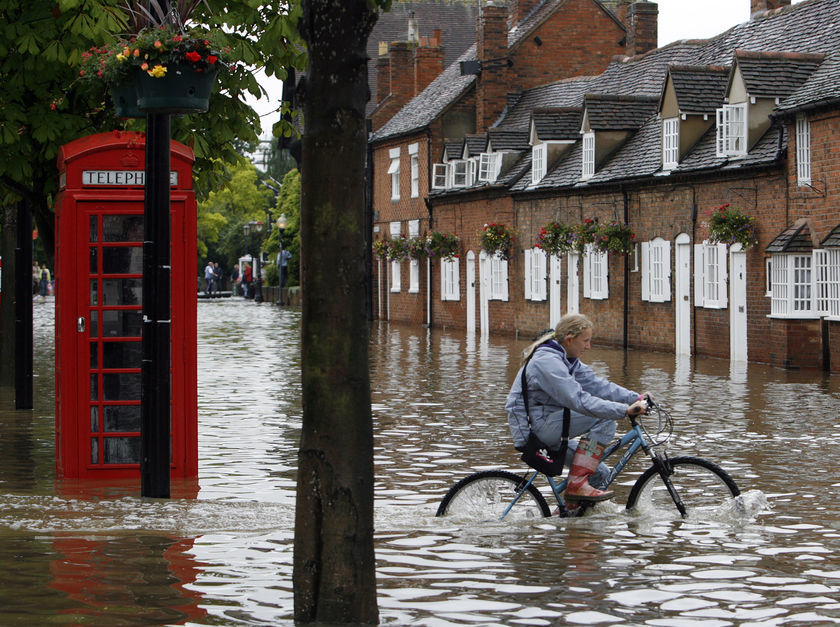The widespread flooding experienced in towns and cities in the County of Cumbria in North West England in late December is in large part due to the United Kingdom’s adoption of European Union environmental regulation preventing the dredging, deepening and on occasion widening and building embankments along rivers according to critics of the policies. The BBC reported more than 16,000 houses were flooded during December storms across Northern England with more flooded in Scotland.
Historically Towns Dredged
Historically riverside cities and towns throughout England were responsible for reducing the frequency and severity of flood events through debris removal and dredging.
As reported by Phillip Walling in UK’s Chronicle, Cumbrian rivers are notoriously quick to rise when heavy rain falls on the High Fells, an area with a large surface area of gravel filled, thin soils, as the rain rapidly runs off into adjacent streams and rivers. Recognizing this problem, city authorities and, before them, manors and towns and villages, organized work forces to ensure watercourses were cleansed, deepened and sometimes embanked to hold whatever water they had to carry away.
The city of Cockermouth was one of the towns hardest by the recent flooding. To prevent just such events, in the 19th century Cockermouth required any able-bodied man seeking room and board for the night in the workhouse to take a shovel and wheelbarrow down to the River Derwent and fetch back two barrow-loads of gravel for mending the roads. As Walling reports, this policy solved three problems: keeping the river dredged, maintaining the roads and making indigent men useful.
Traditionally, courts have also taken the responsibility of towns and even private land holders to maintain rivers and streams in ways to minimize the threat of flooding quite seriously. Many centuries of the Cockermouth Court Leet’s (Manor Court) records show it imposing fines on landowners or lessors for neglecting to cleanse the watercourses running through their land, with the court often issuing detailed instructions to parishes how to maintain their various watercourses. As Walling writes, “For example in 1718 (and again in 1772) certain owners, whose land bordered the river, were fined for allowing it to become ‘beaten out of its course by sand and gravel’ and given two months to dredge it out.” In the early 20th century the obligation to dredge rivers was transferred to local river boards, consisting of farmers and landowners who knew the area and its characteristics, and who had statutory responsibilities to prevent or minimize flooding.
EU Water Policy Stops Maintenance
With creation of the UK Environment Agency in 1997 and the adoption of European Water Framework Directive (EWF) into UK law in 2000, dredging rivers to prevent flooding almost completely ceased. Under the EWF rather than having a duty to prevent flooding, authorities’ primary obligation became achieving a “good ecological status” for our national rivers, defined as being as close as possible to “undisturbed natural conditions.” Under the new law, since “Heavily modified waters,” including rivers dredged or embanked to prevent flooding, cannot satisfy the terms of the directive, to comply with their obligations water authorities had to stop dredging and embanking rivers in order to allow them to “re-connect with their floodplains.”
While money for dredging dried up, money for conservation and restoration arose. Walling notes, 47 rivers trusts have been formed during the last decade, funded by the EU, Natural England, and the Environment Agency among other organizations, with the aim, in part, of implementing the EWF by returning rivers to their “natural healthy” state, including reversing any “straightening and modifying.”
Since the EWF anti-dredging polices were adopted, widespread flooding had become more common in the UK, with large parts of England having been flooded in 2012, 2013 and 2014. Flooding across England throughout 2012 into early 2013 caused estimated damage of more than $1.92 billion.
H. Sterling Burnett, Ph.D., ([email protected]) is the managing editor of Environment & Climate News.





